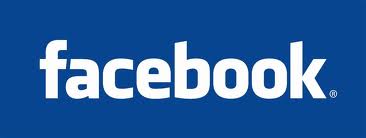 In military jargon, whenever the drill sergeant commands his troops to do an “about face”, he’s instructing the formation to pivot clockwise 180 degrees. I only mention this because a favorite Jerusalem relative recently did an about-face about Facebook and commanded his “troops” (his children, who are my nieces and nephews), to shut down their accounts.
In military jargon, whenever the drill sergeant commands his troops to do an “about face”, he’s instructing the formation to pivot clockwise 180 degrees. I only mention this because a favorite Jerusalem relative recently did an about-face about Facebook and commanded his “troops” (his children, who are my nieces and nephews), to shut down their accounts.
There’s definitely some irony here. My brother-in-law is the most tech savvy, Internet proficient member of the family; he was the first one to set up a Facebook page as a convenient way of sharing family photos and updates because (no evil eye upon us) we happen to be an outrageously large and globally far-flung tribe.
What’s even more ironic is that I ignored his first few invitations the same way I ignored all social media recruiting efforts. I never my-spaced, linked-in, and please forgive me, have absolutely no inclination to tweet, twitter or do anything remotely similar to birds or micro-bloggers. Micro-blogging reminds me of Cliff Notes, and OK, maybe that fellow Dickens would’ve been better off tweeting “it was the best of times, it was the worst of times” instead of writing a lengthy tale of two cities that became a torturous reading assignment for generations of 7th graders.
But the upshot is, I capitulated on Facebook because I wanted to see family photos at a time when it was required to have an account to do so.
Facebook marketing experts have developed a term called the “aha!” moment, as in “Aha! I now grasp the social network concept and it’s a wonderful experience.” What’s more, they’ve actually developed a formula for the precise number of aha! moments a user must experience before he or she is hooked. So let’s just say I racked up enough aha! moments and have been Facebooking for nearly 4 years. I love the convenience and benefits, but I’m also capable of understanding the pitfalls related to privacy issues and social media concerns about misuse.
Not everyone agrees and while I respect my relative’s decision to invoke the parental prerogative, I regret losing the Facebook connection I had with his kids. It was just so wonderfully easy to stay in touch and keep up with them from so far away. And please… no finger pointing at the superficiality of it, because cyberspace is not the only place where social connections are superficial. Human beings are perfectly capable of being superficial and socially inappropriate in real time, face-to-face interactions.
I wonder how history’s e-books will end up recording all this? Will Mark Zukerberg keep company with creative innovators like Franklin and Tesla, or will he be consigned to Darth Vader and the Evil Empire? Most of us agree that technology has no intrinsic morality, it all depends on applications and uses you choose to make of them.
Rabbi Gil Student, a well respected Orthodox Jewish blogger (TorahMusings) and managing editor of OU Press has written eloquently on the subject from both scholarly and halachic viewpoints that address various issues including gossip and groupthink. He strongly advocates a balanced position of, “responsible users, those who are mindful of their privacy and capable of maintaining proper boundaries ….you always have to protect your personal information online, keeping a firewall between your real life and your online persona.” (The Facebook Challenge)
Responsible use is not just a grassroots issue. Respectable grass-tops companies, organizations, businesses and places of worship are now incorporating multimedia strategies combined with social networking applications as an effective way of maintaining high-tech lines of communication. The Orthodox Union uses departmental Facebook pages as a way of targeting information to particular interest groups, eg., NCSY for teens and IPA (Institute for Public Affairs) for those following political advocacy related to Jewish interests.
But, as Rabbi Student points out, “The internet must be built on responsible netizenship. This requires living primarily in the real world and using the internet as a tool.”
“Netizenship” is the key concept here, and that’s what it really comes down to. You can be a critic or a fan. You can even be an about-facer, or a firewall keeper. For now it seems, social networks like Facebook are here for keeps.
For more information about the Orthodox Union’s Facebook Pages, please visit: OU on Facebook
The words of this author reflect his/her own opinions and do not necessarily represent the official position of the Orthodox Union.
